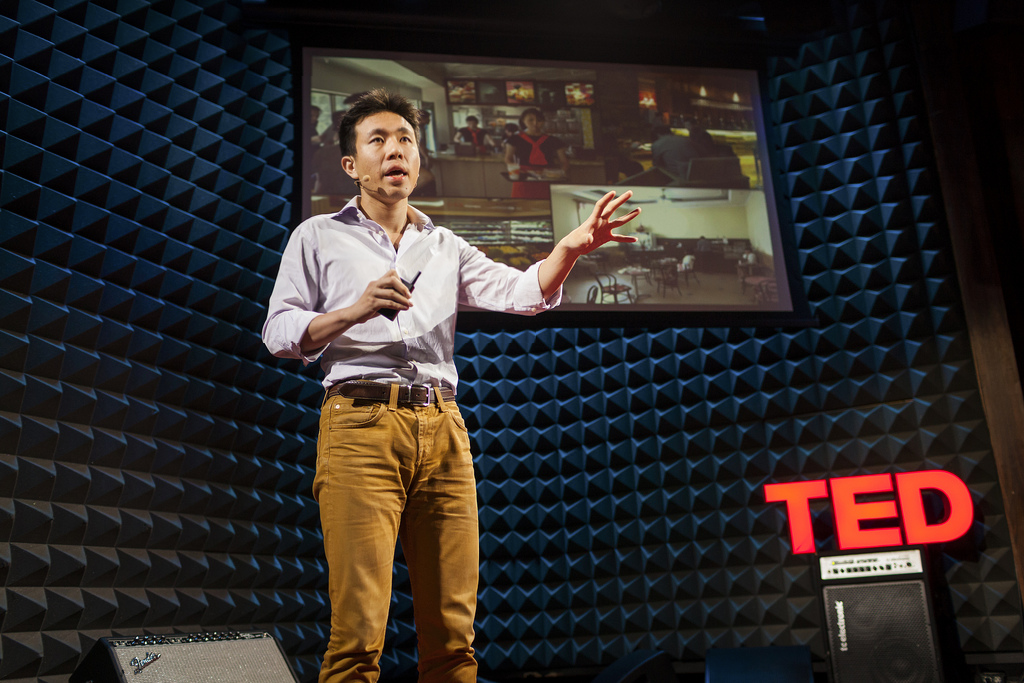Geoffrey See’s Shoppa works with Vietnamese female micro-entrepreneurs to bring daily necessities to underserved communes across the country
The Ready For Launch series asks questions of entrepreneurs to get the inside story behind a new startup or product launch.
More than 90 percent of Vietnam’s population live outside of its two major cities, Hanoi and Ho Chi Minh City, and many smaller towns don't have a supermarket. Considering the country’s high social media penetration rate, one Singaporean entrepreneur came up with a solution.
Geoffrey See started Shoppa with his co-founders, Van Tran and Sean Ang, in August 2021 to bring daily necessities to the millions of Vietnamese living in smaller cities and towns. The company does this by working with local women to build micro-enterprises online that deliver groceries to customers in every commune in the country. Earlier this month, Shoppa was invited to join the coveted startup accelerator Y Combinator as the only Vietnam-focused venture in the retail and social commerce space.
See previously founded and led Choson Exchange, a social enterprise that has trained thousands of North Koreans on economic policy, business and law. It also groomed numerous startups founders and micro-entrepreneurs in the country through its programme.
Below, See shares more on Shoppa’s mission and his North Korean experience.
See also: How Carousell's Quek Siu Rui Is Changing the Future of Retail

Please introduce Shoppa.
Shoppa puts a digital supermarket in every commune in Vietnam. Our team works with female micro-entrepreneurs to bring daily necessities to 86 million Vietnamese living in smaller cities and towns.
What’s the story behind the startup’s founding?
My co-founder Van Tran grew up in one of the poorest provinces in Vietnam without ever seeing a supermarket in her childhood. My other co-founder Sean Ang spent more than a decade as a retail executive at NTUC Fairprice, Singapore’s largest supermarket chain. We found that many Vietnamese still live 20-to-30km away from the nearest supermarket and would travel the distance on weekends to purchase products that are less available in their local area.
Modern grocery retail still only makes up 9 percent of the Vietnamese market. For comparison, it is 47 percent in Thailand. As income rises in Vietnam, we believe that this will change significantly and we want to be part of making that change happen.
Why did you choose to go into social commerce?
I spent more than a decade training micro-entrepreneurs in North Korea. Most of them were women and small-scale retailers. When I first saw how, in China, app-based selling took away the risks of buying the wrong products and how it taught sellers how to set prices and manage customers on a messaging app instead of at a physical store, I was hooked. Here was a far better model to train people to be better retailers than sitting in a classroom!
See also: Filipino Entrepreneur Katrina Chan On Raising Capital And Finding Opportunity In Underserved Markets
How long did it take you to get from idea to launch?
We started testing the idea in Thailand in early 2021 and decided to switch to Vietnam in May. But due to Covid-19 restrictions, it took us until September—and two whole months in quarantine—before we could reach our target market to launch a minimum viable product. Despite many Covid-19-related disruptions, we were able to grow our revenue by 10 times within two months of our launch.

